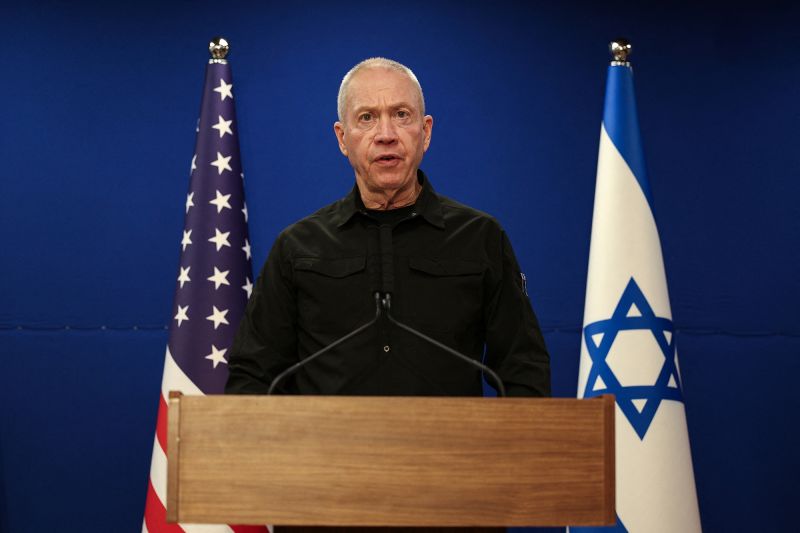
Israel's Military Offensive in Gaza: Divides and Controversies

The decision by the Israeli military to withdraw one of its army divisions from the Gaza Strip has sparked criticism and division among Israeli lawmakers. This move exposes the complexities and controversies surrounding Israel's military offensive in the Palestinian enclave. The ongoing conflict has led to a growing chorus of condemnation from leaders and has raised concerns about the humanitarian crisis in Gaza. Additionally, internal divisions within the Israeli government and the broader defense establishment highlight the challenges of post-war planning and the future of Gaza.
Criticism and Controversy
Israel's National Security Minister Itamar Ben Gvir has strongly criticized the Israeli military's decision to withdraw an army division from the Gaza Strip. This move has exposed further divides between Israeli lawmakers over the military offensive in the Palestinian enclave. Ben Gvir emphasized the necessity of the occupation of the Gaza Strip for achieving combat goals, citing a recent rocket barrage from Gaza into Israel as evidence.
Israeli Defense Minister Yoav Gallant, pictured on December 18 in Tel Aviv, announced the withdrawal of some troops from Gaza on Monday. It was the most significant sign so far of a new phase in Israel's military offensive.
The withdrawal of the 36th division, comprising armored, engineering, and infantry companies, from the Gaza Strip after 80 days marks a significant shift in the ongoing military offensive. The decision has raised concerns and sparked debates within the Israeli government and the defense establishment.
A growing chorus of leaders has condemned the spiraling death toll in Gaza, emphasizing the urgent need to address the humanitarian crisis and the impact of the military offensive on the civilian population. The conflict has led to widespread devastation and raised international concerns about the escalating violence and its consequences.
Challenges and Strategy
Israeli Defense Minister Yoav Gallant announced the withdrawal of some troops from Gaza, signaling a shift in the military's offensive strategy. The decision to end the 'intensive manoeuvring stage' in northern and southern Gaza reflects the evolving nature of the conflict and the military's approach to addressing resistance.
The Israeli military is focused on eliminating pockets of resistance in northern Gaza through raids, airstrikes, special operations, and additional activities. The adaptation of operations based on ground reality and intelligence underscores the complexities of the military campaign and the challenges of achieving strategic objectives.
The withdrawal of the 36th division for refreshment and training highlights the dynamic nature of the military's operations and the need to assess the operational requirements in Gaza. The presence of three IDF combat divisions in Gaza, alongside special forces, underscores the ongoing military engagement and the complexities of post-war planning.
Internal Divisions and Post-War Planning
The internal divisions within the Israeli government and the defense and security establishment reflect the challenges of post-war planning and the future of Gaza. Tensions have surfaced over the extent of Israel's presence in Gaza and the handling of investigations into security failings surrounding recent attacks.
The public disagreement among cabinet members and the broader debate over post-war plans for Gaza highlight the complexities of decision-making and the diverse perspectives within the Israeli leadership. The push for re-occupation and the potential return of Jewish settlements in Gaza underscore the contentious nature of post-war discussions and the divergent views on Israel's future approach.
Israeli Prime Minister Benjamin Netanyahu, pictured on September 27, in Jerusalem. Divides between lawmakers within Netanyahu's cabinet, over proposed post-war plans for Gaza, have spilled into public view recently.
The forced displacement of millions of people in Gaza, the humanitarian crisis, and the regional implications of the conflict present complex challenges for Israel and the broader Middle East. The ongoing tensions and debates within the Israeli government have broader geopolitical implications and underscore the complexities of addressing the aftermath of the military offensive in Gaza.















